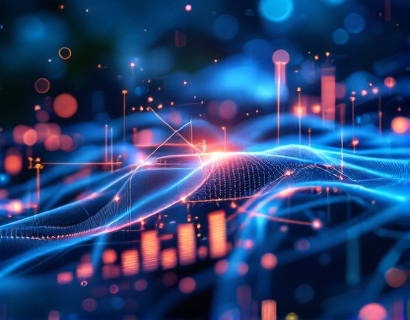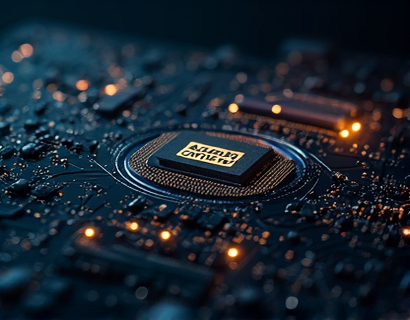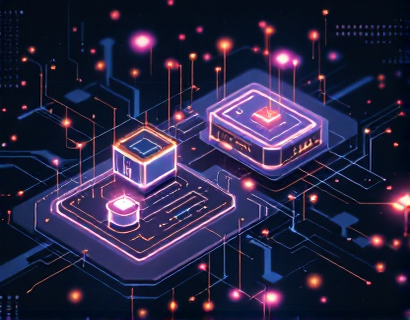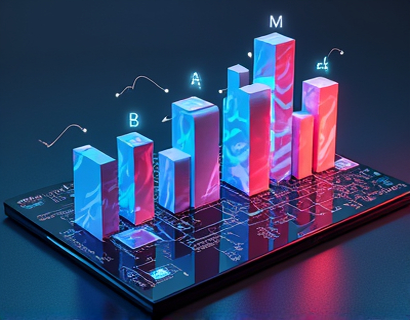Blockchain Oracle Management: Streamlining Data Integration and Smart Contract Execution for Decentralized Applications
In the rapidly evolving landscape of blockchain technology, the integration of reliable data sources and the execution of smart contracts are pivotal for the success of decentralized applications (dApps). Oracle management plays a crucial role in this process by facilitating the seamless flow of data between the blockchain and external sources. This article delves into the advanced solutions and strategies for optimizing oracle management, thereby enhancing data integration and smart contract functionality. By understanding these concepts, developers and businesses can unlock the full potential of blockchain, ensuring real-time, secure, and reliable interactions within dApps.
Understanding Oracle Management in Blockchain
Oracle management in blockchain refers to the process of integrating external data sources with smart contracts on a blockchain network. Oracles act as intermediaries, providing the necessary data from off-chain sources to on-chain smart contracts. This data can include anything from market prices and weather updates to identity verification and transaction confirmations. The efficiency and reliability of oracles directly impact the performance and trustworthiness of dApps.
The primary challenge in oracle management is ensuring the accuracy, security, and timeliness of the data provided. Traditional oracle solutions often suffer from centralization, which can introduce single points of failure and vulnerabilities. Decentralized oracle networks address these issues by aggregating data from multiple sources, thereby enhancing reliability and reducing the risk of manipulation.
Key Components of Advanced Oracle Management
To streamline data integration and boost smart contract functionality, several key components must be considered in advanced oracle management systems.
Data Aggregation
Data aggregation involves collecting data from multiple sources and consolidating it into a single, coherent dataset. This process is essential for providing smart contracts with comprehensive and accurate information. Advanced oracle management platforms employ sophisticated algorithms to filter, validate, and prioritize data from various sources, ensuring that the smart contracts receive the most relevant and up-to-date information.
Security Measures
Security is paramount in oracle management. Oracles must be designed to prevent tampering, ensure data integrity, and protect against malicious attacks. Techniques such as cryptographic hashing, digital signatures, and multi-signature wallets are employed to secure data transmission and storage. Additionally, decentralized oracle networks distribute trust across multiple nodes, reducing the risk of centralized failures and enhancing overall security.
Real-Time Data Updates
For dApps that require up-to-the-minute data, real-time updates are crucial. Advanced oracle management systems utilize WebSockets, Server-Sent Events, and other real-time communication protocols to deliver immediate data updates to smart contracts. This ensures that decisions made by dApps are based on the latest available information, enhancing user experience and operational efficiency.
Interoperability
Interoperability between different blockchain networks and external systems is another critical aspect of oracle management. Modern oracle solutions support multiple blockchain platforms and can integrate with various off-chain services, enabling seamless data exchange and smart contract execution across different ecosystems. This interoperability is essential for building versatile and scalable dApps.
Benefits of Advanced Oracle Management
The implementation of advanced oracle management solutions brings numerous benefits to developers and businesses leveraging blockchain technology.
Enhanced Data Reliability
By aggregating data from multiple decentralized sources, advanced oracle management systems significantly reduce the risk of data inaccuracies and manipulation. This enhances the reliability of smart contracts, ensuring that they operate based on trustworthy information. Users can have greater confidence in the outcomes of dApps, leading to increased adoption and trust in blockchain solutions.
Improved Security
The decentralized nature of advanced oracle management platforms minimizes the risk of single points of failure and cyber attacks. The use of cryptographic techniques and multi-signature protocols ensures that data remains secure throughout the transmission and storage process. This heightened security is crucial for applications handling sensitive information, such as financial transactions and personal data.
Increased Efficiency
Automated data aggregation and real-time updates streamline the data flow, reducing manual intervention and processing time. This efficiency translates to faster smart contract execution and more responsive dApps. Businesses can leverage these improvements to optimize operations, reduce costs, and enhance user satisfaction.
Scalability
Advanced oracle management solutions are designed to scale with growing dApp ecosystems. As the number of smart contracts and data sources increases, these systems can handle the expanded load without compromising performance. This scalability is essential for the long-term success of blockchain projects, allowing them to adapt and grow alongside user demands.
Implementing Oracle Management in Decentralized Applications
For developers and businesses looking to integrate advanced oracle management into their dApps, several steps and considerations are essential.
Choosing the Right Oracle Solution
The first step is to select an oracle solution that aligns with the specific needs of the dApp. Factors to consider include the types of data required, the frequency of updates, security requirements, and interoperability with existing blockchain networks. Evaluating different platforms and their features will help in making an informed decision.
Designing the Oracle Interface
Once the oracle solution is chosen, the next step is to design the interface through which smart contracts will interact with the oracle. This involves defining the data endpoints, specifying the data formats, and implementing the necessary smart contract functions to fetch and process the data. Ensuring a well-designed interface is crucial for smooth data integration and smart contract execution.
Testing and Validation
Rigorous testing and validation are essential to ensure the reliability and security of the oracle integration. This includes unit testing of smart contract functions, integration testing of the oracle interface, and stress testing to simulate high-load scenarios. Additionally, conducting security audits can help identify and mitigate potential vulnerabilities.
Monitoring and Maintenance
After deployment, continuous monitoring and maintenance are necessary to maintain the performance and security of the oracle system. This involves monitoring data accuracy, system uptime, and security logs. Regular updates and patches should be applied to address any issues and incorporate new features.
Case Studies and Real-World Applications
Several successful dApps have leveraged advanced oracle management to achieve their goals. For instance, decentralized finance (DeFi) platforms use oracles to fetch real-time market data, enabling accurate pricing and automated trading. Prediction markets also rely on oracles to provide the necessary data for users to make informed bets. These applications demonstrate the practical benefits of efficient oracle management in enhancing the functionality and reliability of dApps.
Future Trends in Oracle Management
The field of oracle management is continually evolving, with several emerging trends poised to shape the future of blockchain applications.
Decentralized Autonomous Organizations (DAOs)
DAOs are self-governing organizations powered by smart contracts, and they can benefit significantly from advanced oracle management. By integrating oracles, DAOs can make data-driven decisions, manage funds, and execute governance proposals based on real-time data, enhancing transparency and efficiency.
Cross-Chain Interoperability
As the blockchain ecosystem grows, cross-chain interoperability will become increasingly important. Advanced oracle management solutions will play a key role in enabling seamless data exchange and smart contract execution across different blockchain networks, fostering a more interconnected and efficient ecosystem.
AI and Machine Learning Integration
The integration of artificial intelligence (AI) and machine learning (ML) with oracle management can further enhance data processing and analysis. AI algorithms can predict data trends, detect anomalies, and optimize data aggregation processes, leading to more intelligent and adaptive oracle systems.
In conclusion, advanced oracle management is a critical component in the development and success of decentralized applications. By addressing the challenges of data integration and smart contract execution, these solutions enable real-time, secure, and reliable interactions within dApps. As the blockchain landscape continues to evolve, the importance of efficient oracle management will only grow, paving the way for more sophisticated and user-friendly blockchain applications.










































